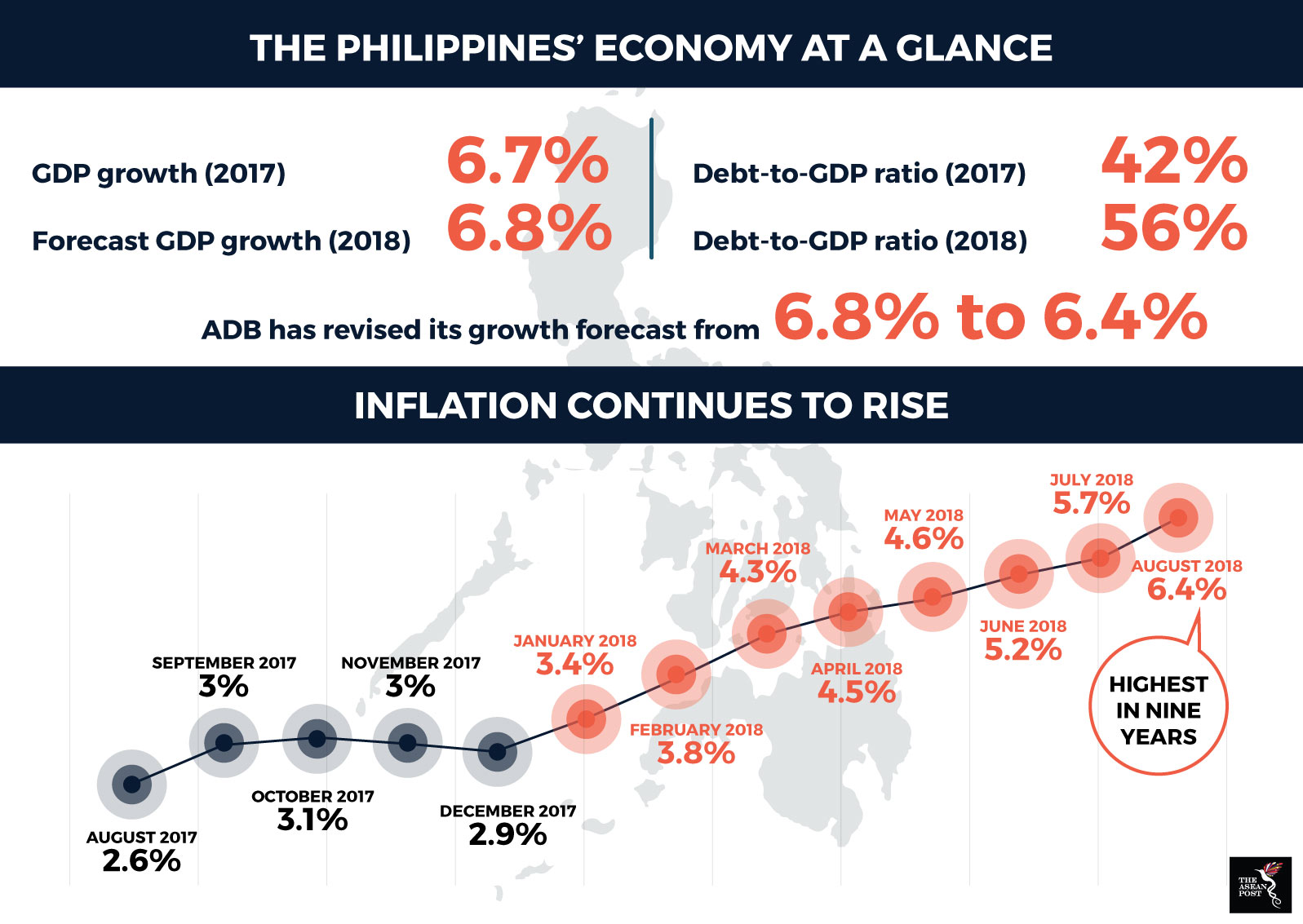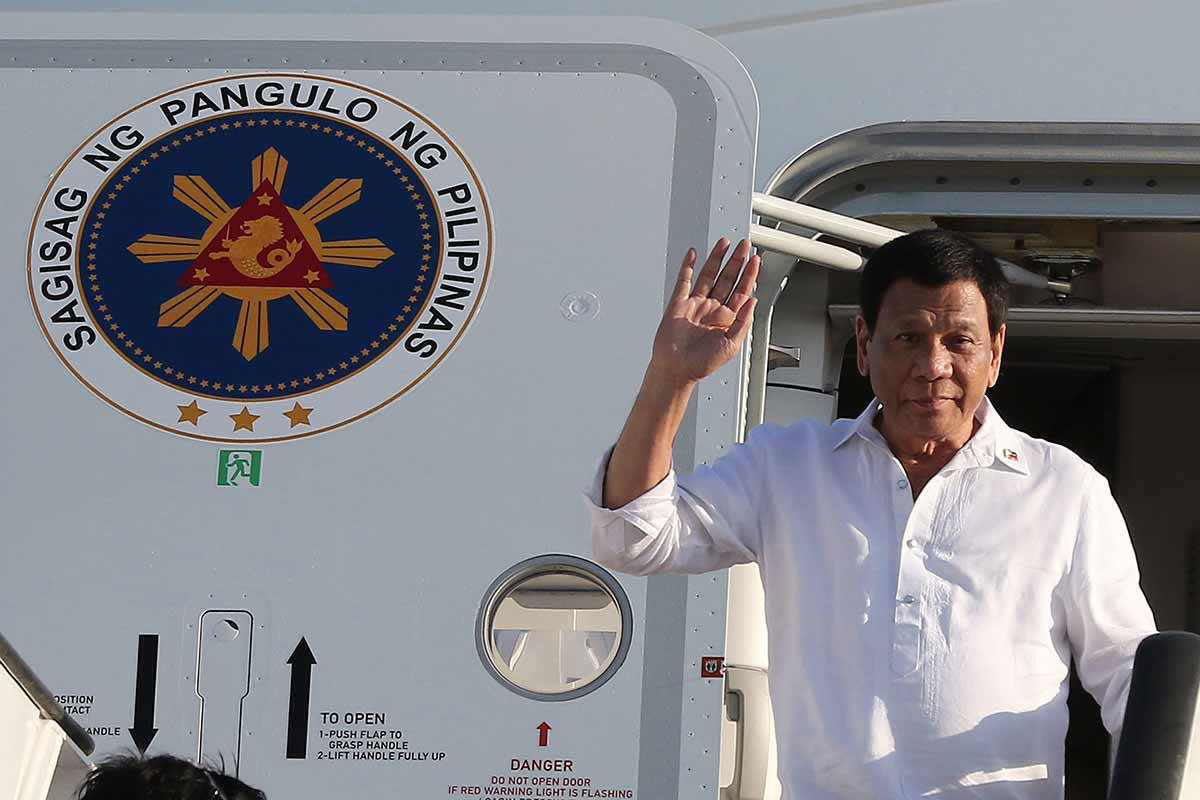After two years since his landslide presidential victory, Philippine President Rodrigo Duterte could finally be facing his biggest challenge yet. No, it is not his controversial war on drugs which Human Rights Watch says has claimed more than 12,000 lives. Nor is it his abysmal human rights track record.
At the moment, the biggest concern for many ordinary Filipinos is the economy – a concern most likely shared by Duterte as well. Over the past few months, the Philippines has seen its inflation rate rise rapidly.
The latest data from the Philippine Statistics Authority reveals that the rate of inflation had reached a whopping 6.4 percent in August. The current inflation rate is at a nine-year high and is much higher than the government’s four percent upper target for this year.
In fact, the country’s rate of inflation is the highest in Southeast Asia by some margin. The second highest in the region is Vietnam, which had an inflation rate of 4.5 percent in July as opposed to the Philippines’ 5.7 percent for the same month.
According to economists, there are a number of factors affecting the spike in inflation. One of the main reasons can be attributed to the continuing rise of oil prices worldwide. Unlike some of its neighbours, the Philippines does not produce oil and is actually one of the biggest net importers of oil in the region. Crude oil prices have been steadily growing for the past year reaching a four-year high last week. With oil playing a critical role in economic activities such as transportation, a rise in oil prices will have a knock-on effect on the rest of the economy.
The falling value of the peso has also compounded the rise in the price of goods in the country. The peso is currently trading at its lowest in over a decade, due to various factors such as a widening trade gap – in which a country's imports exceeds its exports – and external factors such as the United States (US)-China trade war.
 Source: Various
Source: Various
The IBON Foundation, a non-profit research group based in Manila claims that the biggest victims of inflation are the ordinary Philippine citizens who have to cope with rising prices. Local media in the Philippines have reported that the price increase in electricity, gas, fuels, fish, rice, personal transport, vegetables and meat was the biggest contributor to inflation.
“The cumulative impact of high inflation is that the poor will eat less, walk more, forego spending on medicines and treatment, scrimp on their utilities, and have nothing for emergencies,” said Sonny Africa, IBON Foundation executive director.
Retailers are also hurting from the rise in prices of goods. As inflation rises, consumers are more likely to save and would be reluctant to spend more. If this trend continues, a slowdown in economic activity would occur resulting in less growth.
Many are now looking to Duterte to solve the country’s economic woes. Duterte has been quick to deflect the blame for the country’s economic performance by passing the buck to rising oil prices and the US-China trade war, however solutions or reassurances are slow to come by.
The IBON Foundation also holds Duterte partly responsible for the spike in inflation because of his tax reforms. Duterte’s Tax Reform for Acceleration and Inclusion (TRAIN) law increased tax on consumption which effectively raised prices of goods.
“The Duterte administration’s insistence on TRAIN makes it directly accountable for the highest inflation in almost 10 years,” Africa added.
Despite Duterte’s numerous controversies, this could be the biggest challenge of his presidency. A survey released this week showed a double digit drop in Duterte’s approval ratings, the biggest since coming to power. However, the survey shows that Duterte still enjoys overwhelming support, with a 72 percent approval rating.
Duterte needs to look at solutions to such problems quickly though, as the Asian Development Bank (ADB) has revealed that inflation could affect the nation’s growth. The ADB recently slashed its economic growth outlook for the Philippines to 6.4 percent from 6.8 percent for 2018.
At this juncture, there are no quick fixes for the Philippines’ economy as any solution would require long-term structural reforms. The IBON Foundation has recommended that Duterte take a more comprehensive approach. The embattled president currently faces the herculean task of protecting his people from the economic fallout while also fixing the economy.
Related stories:
Can the TRAIN bill save the Philippines?
China to boost Duterte’s Build! Build! Build!
Philippines feels the heat from hackers
